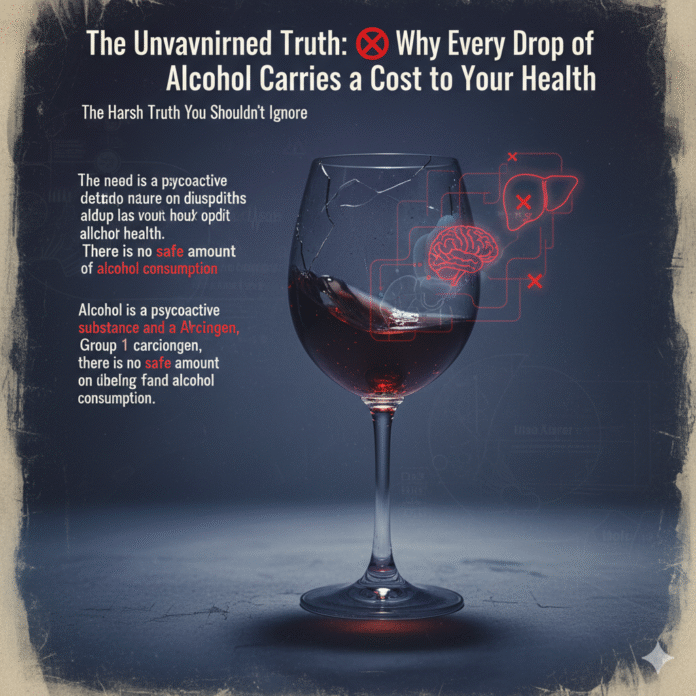Introduction
In today’s fast-paced world, drinking alcohol has become a common social habit. From weekend parties to stress relief after work, many people see alcohol as harmless fun. However, the truth is that drinking alcohol is injurious to health— not only in the long run but also in ways that start affecting your body immediately. Let’s uncover why cutting down (or quitting) alcohol can drastically improve your overall well-being.
1. Alcohol Damages Your Liver
The liver is the body’s natural detoxifier — and alcohol is one of its biggest enemies. Regular drinking can cause fatty liver, hepatitis, and eventually cirrhosis, a life-threatening condition where the liver becomes scarred and loses function.
💡 Fact: The liver takes about one hour to process a single drink. Drinking more than that overloads it.
2. It Weakens Your Immune System
Alcohol reduces your body’s ability to fight infections. Even small amounts can lower immune response, making you more prone to colds, flu, and other illnesses. Long-term drinkers often experience slow healing wounds and chronic fatigue due to a weakened immune system.
3. Impacts on Mental Health
Alcohol might seem like a quick mood booster, but it actually increases anxiety and depression over time. It interferes with neurotransmitters in the brain, disturbing the chemical balance responsible for happiness and calmness.
💭 Tip: Try replacing alcohol with natural mood-lifters like herbal teas, exercise, or meditation.
4. Digestive and Weight Issues
Alcohol is full of empty calories and disrupts digestion. It irritates the stomach lining, leading to acid reflux, bloating, and poor nutrient absorption. Plus, regular drinking often leads to weight gain — especially around the belly area.
5. Heart and Blood Pressure Problems
Moderate to heavy drinking raises your blood pressure, increases cholesterol levels, and puts extra stress on your heart. Over time, it can lead to heart disease, stroke, or even sudden cardiac arrest.
6. Sleep Disruption and Energy Loss
While alcohol may make you sleepy initially, it actually reduces sleep quality. It disrupts REM cycles — the most restorative part of sleep — leaving you tired and irritable the next day. This constant fatigue affects focus, productivity, and mood.
7. Long-Term Cancer Risks
Research shows that alcohol increases the risk of several cancers, including mouth, throat, breast, liver, and colon cancer. Even moderate drinking has been linked to increased cancer risks due to the production of acetaldehyde, a toxic chemical created when alcohol is processed in the body.
Healthier Alternatives to Alcohol
If you’re trying to cut down, here are some natural and refreshing alternatives:
- Lemon-infused water or detox teas (like Triphala or Jeera-Ajwain water)
- Sparkling water with fruit slices
- Coconut water for hydration and natural sweetness
- Herbal mocktails with mint, tulsi, or ginger
Conclusion
While an occasional drink might not seem harmful, the cumulative effects of alcohol can seriously damage your health, body, and mind. Making conscious lifestyle choices can help you stay energetic, focused, and emotionally balanced.
Your health is your greatest wealth — treat it with care, and let moderation (or abstinence) be your new mantra.
